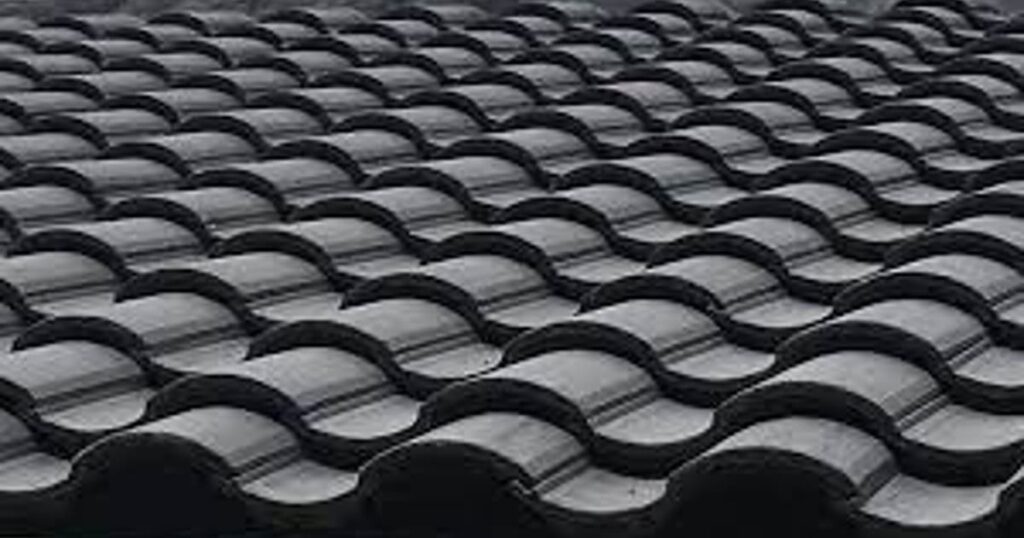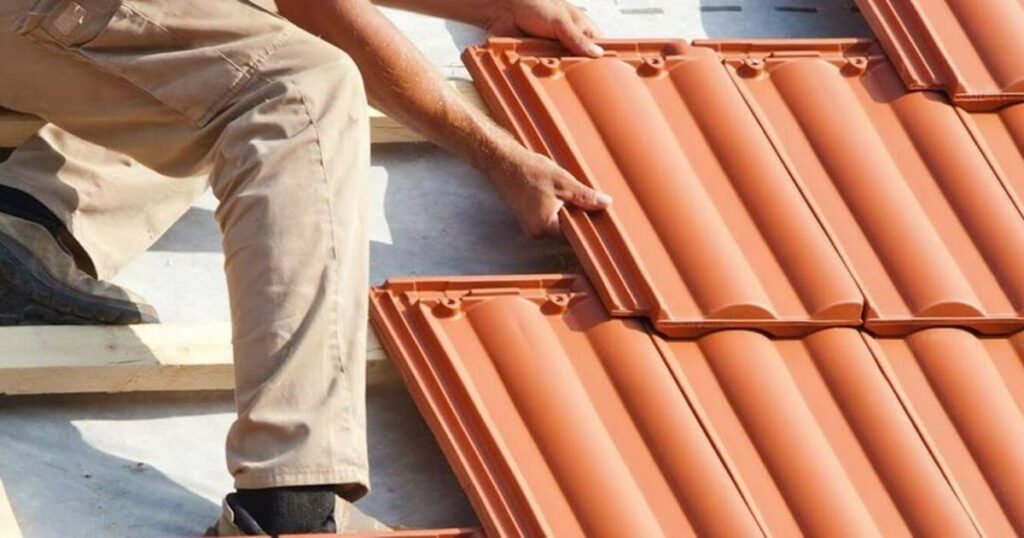
Roofing materials play a crucial role in safeguarding homes against the elements, and in the vibrant landscape of North Carolina, this importance is accentuated. One material that stands out for its durability, elegance, and timeless appeal is clay roof tiles. Let’s delve into the world of clay roof tiles and explore why they’re an ideal choice for North Carolina living.
Clay roof tiles are renowned for their exceptional durability, with many installations lasting over a century with proper maintenance. The natural properties of clay, combined with the firing process, result in tiles that are resistant to weathering, fading, and corrosion, ensuring long-lasting protection for homes in North Carolina.
North Carolina experiences a diverse climate, with hot summers, cold winters, and frequent rainstorms. Clay roof tiles are well-suited to these conditions, offering excellent resistance to high winds, heavy rains, and extreme temperatures. Their inherent thermal mass helps regulate indoor temperatures, reducing the strain on HVAC systems and enhancing energy efficiency.
Clay roof tiles provide natural insulation, helping to maintain comfortable temperatures inside homes year-round. By reducing heat transfer through the roof, clay tiles can lower energy consumption for heating and cooling, resulting in lower utility bills and reduced carbon emissions. This energy-saving benefit is particularly advantageous in North Carolina’s climate, where temperature extremes are common.
Traditional Spanish clay tiles, also known as barrel tiles, are characterized by their distinctive curved shape. These tiles evoke a timeless Mediterranean aesthetic and offer excellent weather protection. With their overlapping design, Spanish clay tiles provide effective water runoff and are well-suited to both traditional and contemporary architectural styles.
Flat interlocking clay tiles feature a sleek, modern design with straight edges and interlocking profiles. These tiles create a clean and streamlined look on the roof, with minimal visible fasteners. Ideal for contemporary homes and commercial buildings, flat interlocking clay tiles offer superior wind resistance and can be installed with ease.

S-shaped clay tiles, also known as mission tiles, combine the elegance of traditional clay tiles with a unique profile that adds visual interest to roofs. These tiles feature a curved shape that resembles the letter “S” when viewed from the side, creating a distinctive texture and pattern on the roof. Mission tiles are popular for their versatility and ability to complement various architectural styles, from Spanish Revival to Mediterranean.
The pitch of the roof plays a crucial role in determining the suitability of clay roof tiles. While clay tiles can be installed on roofs with varying pitches, certain styles may be better suited to steeply pitched roofs than others. Homeowners should consult with roofing professionals to assess the compatibility of clay tiles with their roof design.
Before installing clay roof tiles, it’s essential to assess the structural integrity of the roof to ensure it can support the weight of the tiles. Factors such as the framing material, spacing of roof trusses, and overall load-bearing capacity must be evaluated to prevent structural issues and ensure the longevity of the roofing system.
Clay roof tiles are available in a wide range of colors, finishes, and profiles, allowing homeowners to customize their roofs to suit their preferences and architectural style. From earthy terracotta tones to rich shades of red, brown, and gray, there’s a clay tile to complement any home design. Homeowners should consider factors such as local building codes, neighborhood aesthetics, and personal taste when selecting the color and style of clay tiles for their roofs.
Installing clay roof tiles requires specialized knowledge, skills, and equipment that only experienced roofing professionals possess. Hiring a reputable tile roofing contractor ensures that the installation is carried out to the highest standards, with attention to detail and adherence to industry best practices.
Homeowners should verify that the tile roofing contractor is licensed, bonded, and insured to perform roofing work in their area. Licensing ensures that the contractor has met the necessary requirements and has the expertise to handle clay tile installations safely and effectively. Insurance provides protection against liability for any accidents or damages that may occur during the project.
Before hiring a tile roofing contractor, homeowners should research the company’s reputation and request references from past clients. Reading online reviews, checking ratings with the Better Business Bureau, and asking for recommendations from friends and family can help homeowners assess the contractor’s reliability, professionalism, and quality of workmanship.
The installation process begins with thorough roof preparation, which may involve removing existing roofing materials, repairing damaged areas, and ensuring proper ventilation. A clean and smooth roof surface is essential for achieving a professional and long-lasting clay tile installation.
The next step is to install an appropriate underlayment to provide an additional layer of protection against moisture infiltration. Depending on the roof’s design and local building codes, different types of underlayment materials such as asphalt-saturated felt or synthetic membranes may be used.

Clay roof tiles are laid out and fastened to the roof using specialized fasteners designed to withstand the elements. Proper alignment and spacing between tiles are essential for creating a uniform and aesthetically pleasing roofscape. Experienced roofers use techniques such as back-buttering and staggering to ensure a secure and watertight installation.
Finally, ridge and hip tiles are installed along the ridges and hips of the roof to provide a finished appearance and protect against water intrusion. These specialized tiles are carefully fitted and secured using mortar or adhesive, creating a seamless transition between roof sections and enhancing the overall aesthetics of the roof.
Homeowners should conduct regular inspections of their clay roof tiles to identify any signs of damage, wear, or deterioration. Inspections should be performed at least once a year, ideally before and after the winter season, to catch any issues early and prevent costly repairs.
Keeping the roof clean and free of debris is essential for prolonging the lifespan of clay roof tiles and maintaining their appearance. Homeowners can use a soft-bristle brush or low-pressure water stream to remove dirt, moss, algae, and other organic matter from the surface of the tiles. Additionally, applying a biodegradable roof cleaner can help dissolve stubborn stains and organic growth without causing damage to the tiles or surrounding landscaping.
Over time, clay roof tiles may develop cracks or breakage due to factors such as impact from falling debris, freeze-thaw cycles, or natural wear and tear. Prompt repair of damaged tiles is essential to prevent water infiltration and further deterioration of the roof structure. Depending on the extent of the damage, repairs may involve replacing individual tiles, patching cracks with roofing sealant, or rescuing loose tiles with mortar or adhesive.
Clay roof tiles offer numerous benefits for homeowners in North Carolina, including exceptional durability, weather resistance, energy efficiency, and aesthetic appeal. With options ranging from traditional Spanish clay tiles to modern flat interlocking tiles, there’s a clay tile to suit every home style and preference.
Whether building a new home or replacing an existing roof, homeowners in North Carolina should consider clay roof tiles as a premium roofing option. By investing in clay tiles, homeowners can enjoy long-lasting protection, energy savings, and environmental sustainability for their homes. Consultation with a professional tile roofing contractor can help homeowners choose the right clay tiles for their needs and ensure a successful roofing project.